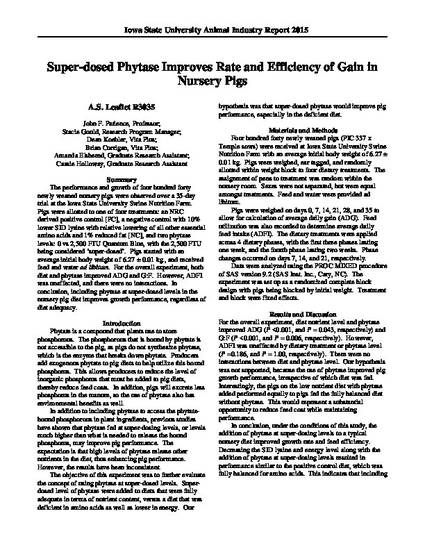
The performance and growth of four hundred forty newly weaned nursery pigs were observed over a 35-day trial at the Iowa State University Swine Nutrition Farm. Pigs were allotted to one of four treatments: an NRC derived positive control [PC], a negative control with 10% lower SID lysine with relative lowering of all other essential amino acids and 1% reduced fat [NC], and two phytase levels: 0 vs 2,500 FTU Quantum Blue, with the 2,500 FTU being considered ‘super-dosed’. Pigs started with an average initial body weight of 6.27 ± 0.01 kg., and received feed and water ad libitum. For the overall experiment, both diet and phytase improved ADG and G:F. However, ADFI was unaffected, and there were no interactions. In conclusion, including phytase at super-dosed levels in the nursery pig diet improves growth performance, regardless of diet adequacy.
Available at: http://works.bepress.com/john-patience/60/
